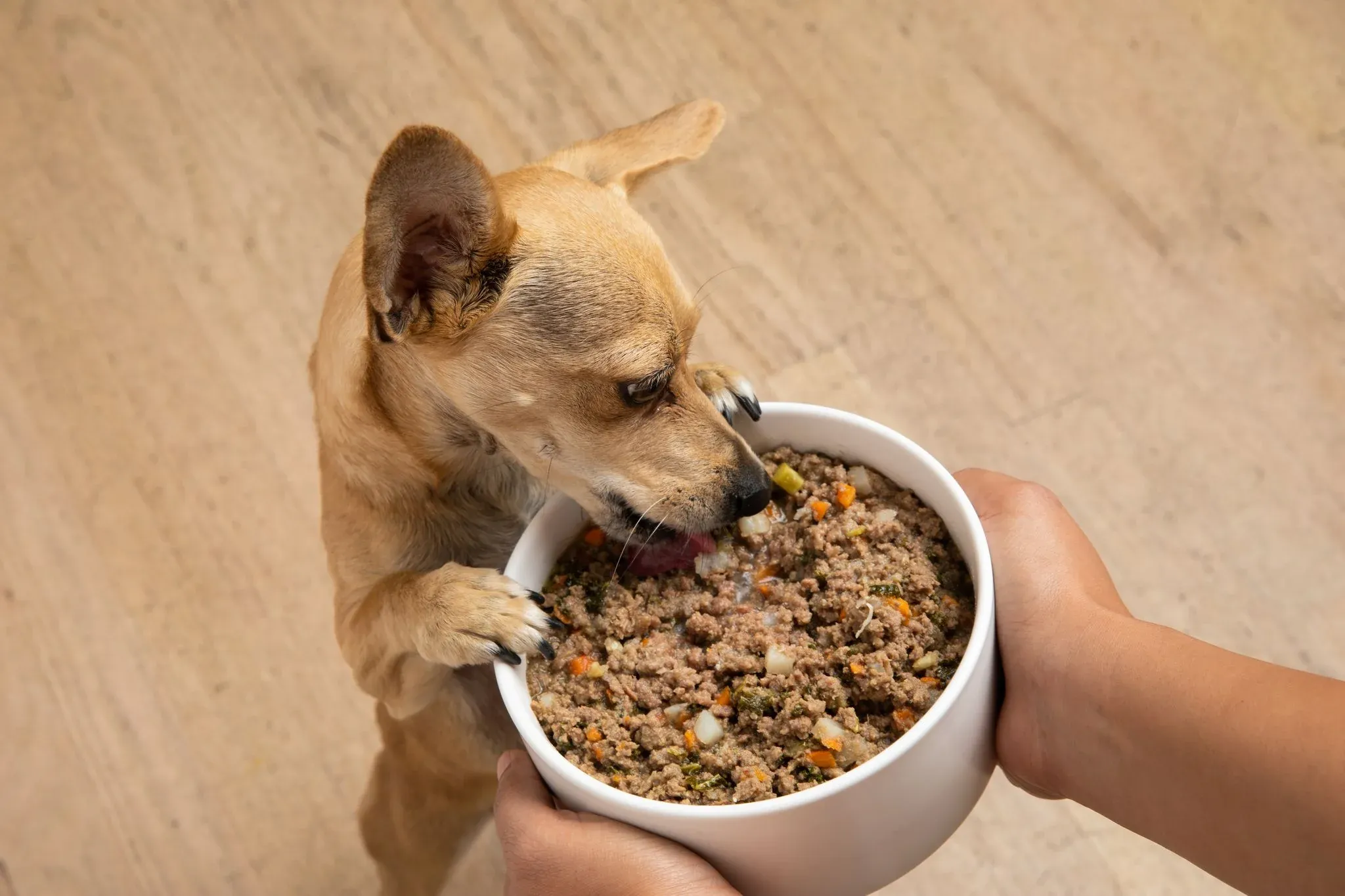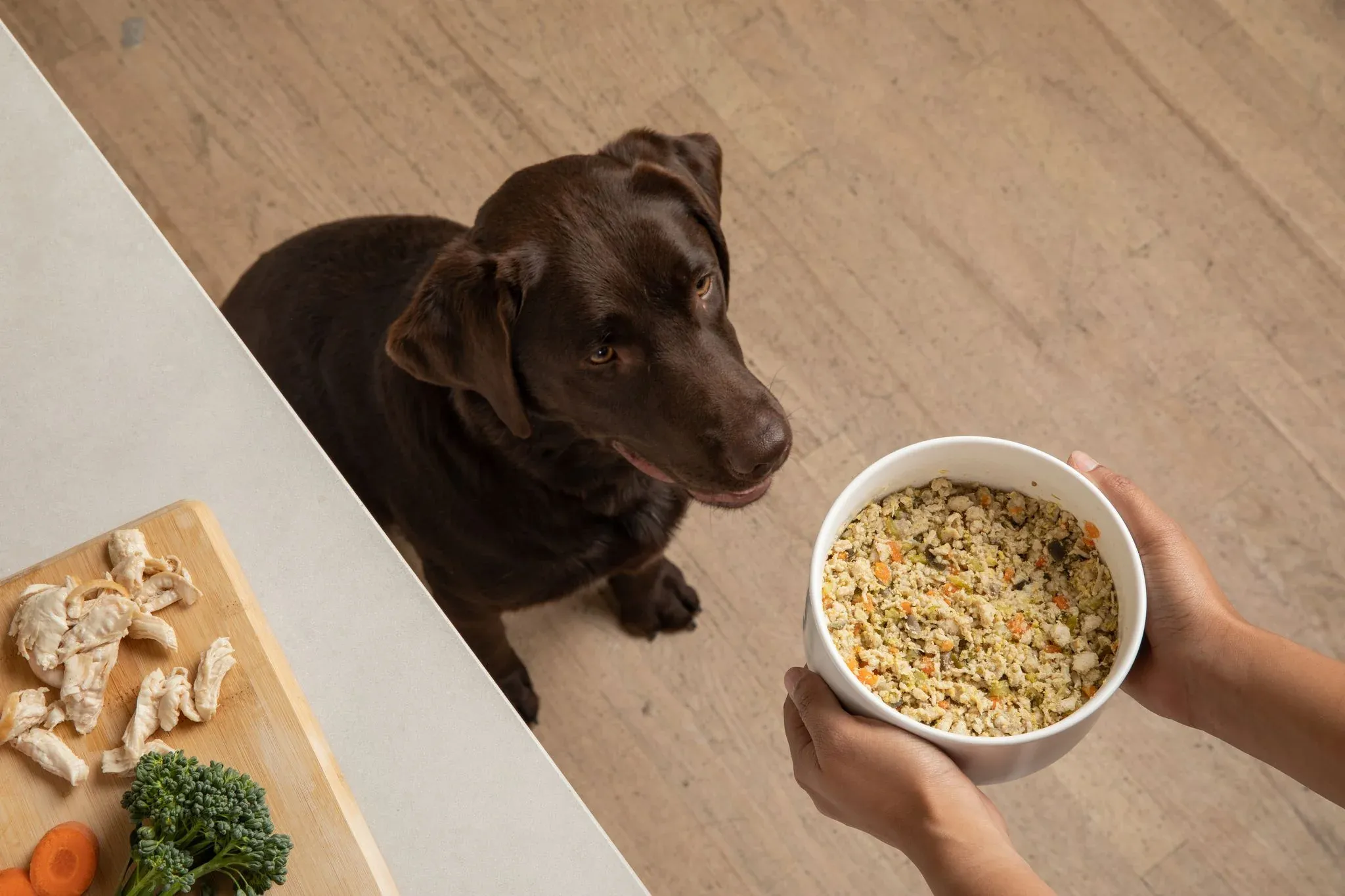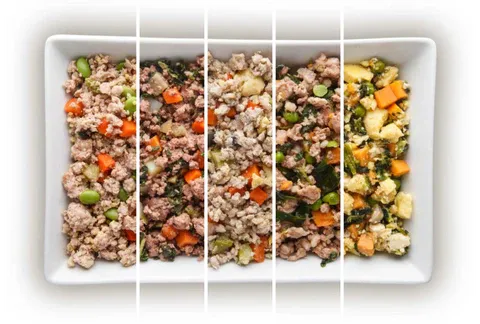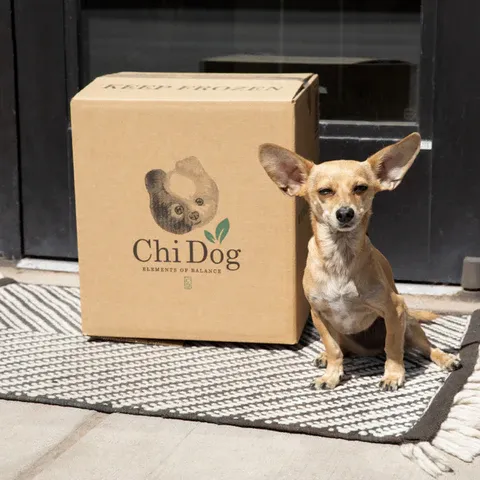If your beloved dog is facing kidney disease, you’re likely feeling worried and searching for reliable ways to help. Kidney issues in dogs can be challenging, but a tailored diet plays a crucial role in management. Many pet owners turn to homemade recipes for dogs with kidney disease to provide fresh, controlled nutrition that supports kidney function while minimizing strain.
In this comprehensive guide, we’ll explore kidney disease in dogs, its symptoms, and why diet matters. We’ll share vet-approved homemade dog food recipes for kidney disease, along with key considerations for preparation and balance. Whether you’re new to this or refining your approach, these insights will empower you to make informed choices for your furry friend’s health.
Understanding Kidney Disease in Dogs
Kidney disease affects countless dogs, altering their daily lives and requiring proactive care. The kidneys filter waste from the blood, balance fluids, and produce vital hormones. When they falter, toxins build up, leading to serious complications.
Early understanding helps you act swiftly. There are two main types: acute and chronic.
Acute vs. Chronic Kidney Disease
- Acute Kidney Injury: Occurs suddenly from toxins like antifreeze, grapes, or certain drugs. Prompt veterinary intervention can reverse it if caught early.
- Chronic Kidney Disease (CKD): Progresses gradually, often with age or underlying conditions like hypertension. It’s manageable but not curable through diet and monitoring.
Key Symptoms to Watch For
Spotting signs early improves outcomes. Common indicators include:
- Excessive thirst and urination
- Fatigue or low energy
- Reduced appetite and weight loss
- Ammonia-like breath
- Vomiting, diarrhea, or bloody urine
These overlap with other issues, so professional diagnosis is essential. Vets use blood tests (checking BUN and creatinine), urinalysis, and imaging like ultrasounds.
 Dog drinking water excessively, a common sign of kidney issues
Dog drinking water excessively, a common sign of kidney issues
Untreated, kidney disease leads to severe fatigue, nausea, and life-threatening complications. A supportive diet can slow progression and boost quality of life.
Why Diet Is Essential for Dogs with Kidney Disease
Diet isn’t just food—it’s therapy for compromised kidneys. By reducing waste load, it eases filtration demands and alleviates symptoms.
 Ingredients for kidney-friendly dog meals including lean proteins and veggies
Ingredients for kidney-friendly dog meals including lean proteins and veggies
Nutritional Science Behind It
Impaired kidneys struggle with waste removal, so meals emphasize low-phosphorus, moderate-protein foods. This prevents overload while sustaining muscle.
Balancing Protein, Fat, and Minerals
- Protein: Opt for high-quality, low-quantity sources like egg whites or lean poultry to minimize urea production.
- Fat: Include omega-3s from fish oil to combat inflammation.
- Minerals: Limit phosphorus (avoid dairy), control sodium, and balance potassium/calcium.
Hydration is critical—moist foods help flush toxins. For balanced options, consider homemade grain free dog food recipes vet approved, which align well with kidney needs.
Vet-Approved Homemade Dog Food Recipes for Kidney Disease
Homemade meals offer customization, avoiding fillers in commercial foods. However, precision is key—consult a vet for your dog’s stage of CKD and needs. Always use fresh, human-grade ingredients.
Benefits of Homemade Diets
You control portions, freshness, and allergens, promoting better hydration and palatability. Studies from veterinary nutritionists, like those from the American Veterinary Medical Association (AVMA), support tailored diets for CKD.
Recipe 1: Chicken and Rice Blend
Simple yet effective for mild cases.
Ingredients (for 4-6 servings):
- 2 cups skinless chicken breast, boiled (no salt)
- 1 cup white rice, cooked
- 1/4 cup steamed carrots, chopped
Instructions:
- Boil chicken until fully cooked; shred.
- Cook rice plainly; steam carrots until soft.
- Mix evenly; cool before serving. Portion: 1/2-1 cup per 10 lbs body weight daily.
This provides digestible protein (about 20-25% of calories) with low phosphorus.
Recipe 2: Lean Beef and Vegetables
Great for variety, focusing on low-phosphorus veggies.
Ingredients:
- 1 cup extra-lean ground beef
- 1/2 cup zucchini, steamed
- 1/2 cup yellow squash, steamed
Instructions:
- Brown beef in a non-stick pan; drain fat.
- Steam veggies; chop finely.
- Combine; serve at room temp.
Monitor portions to keep protein moderate.
Recipe 3: Fish and Sweet Potato
Omega-3 rich for anti-inflammatory benefits.
Ingredients:
- 1 cup cooked salmon or cod (low-phosphorus fish)
- 1 cup boiled sweet potato, mashed
Instructions:
- Bake or boil fish thoroughly.
- Boil and mash sweet potato.
- Blend; add water for moisture.
Vet tip: Phosphorus levels in fish vary—test with your vet.
For related conditions, explore homemade low fat dog food recipes pancreatitis, as low-fat principles overlap with kidney support.
 Product image showing balanced kidney diet meal for dogs
Product image showing balanced kidney diet meal for dogs
Challenges of Homemade Feeding
While rewarding, it’s demanding:
- Time: Daily prep adds up.
- Balance: Requires supplements (e.g., calcium, B vitamins) per vet formulas.
- Cost: Premium ingredients exceed kibble.
- Consistency: Variations risk imbalances.
The WSAVA and board-certified nutritionists stress consulting experts. For puppies in the family, check homemade food for german shepherd puppy adaptations.
Additional Support Strategies
Beyond recipes, holistic care matters.
- Vet Monitoring: Quarterly bloodwork.
- Hydration: Fresh water always; wet food preferred.
- Exercise: Gentle walks only.
- Supplements: Vet-recommended omega-3s or phosphorus binders.
- Stress Reduction: Calm environment.
 Step-by-step care routine illustration for dogs with health issues
Step-by-step care routine illustration for dogs with health issues
Alternative therapies like acupuncture may help, per AVMA guidelines—always vet-approved.
For commercial insights, see our Purina Pro Plan puppy dog food advisor review, useful for transitioning young dogs.
Final Thoughts on Managing Kidney Disease Through Diet
Vet-approved homemade dog food recipes for kidney disease empower you to support your pet’s health with fresh, targeted nutrition. From chicken-rice basics to fish blends, these options reduce kidney workload when balanced correctly.
Success hinges on veterinary partnership—track progress and adjust. Your dedication can extend quality time with your dog.
Ready for more? Explore our guides on pet nutrition and share your experiences in the comments. Consult your vet before changes.
References
- American Veterinary Medical Association (AVMA): Nutritional Management of CKD.
- WSAVA Global Nutrition Guidelines.
- Board-certified veterinary nutritionists via ACVN.org.
About the Author: Dr. Susan Bohrer, DVM, with 15+ years in veterinary practice, specializes in home-cooked pet diets, TCVM herbal therapy, acupuncture, and food therapy.
